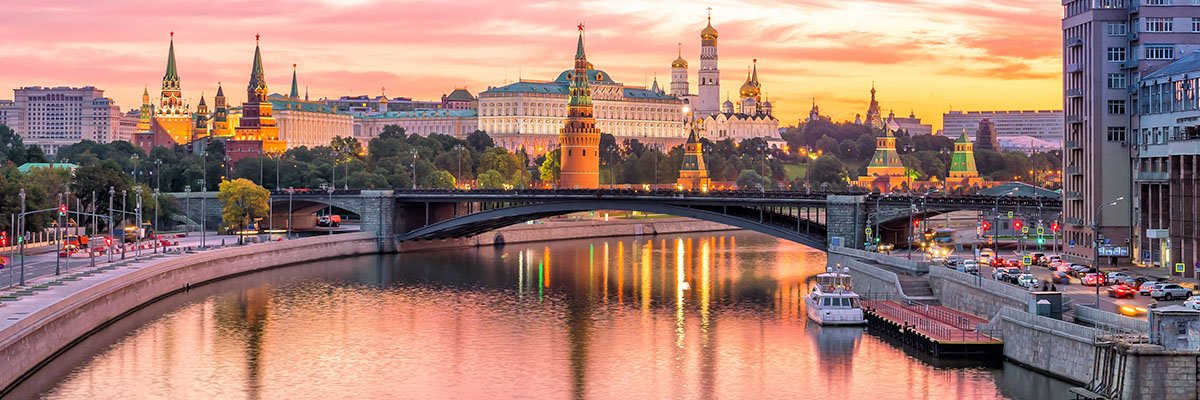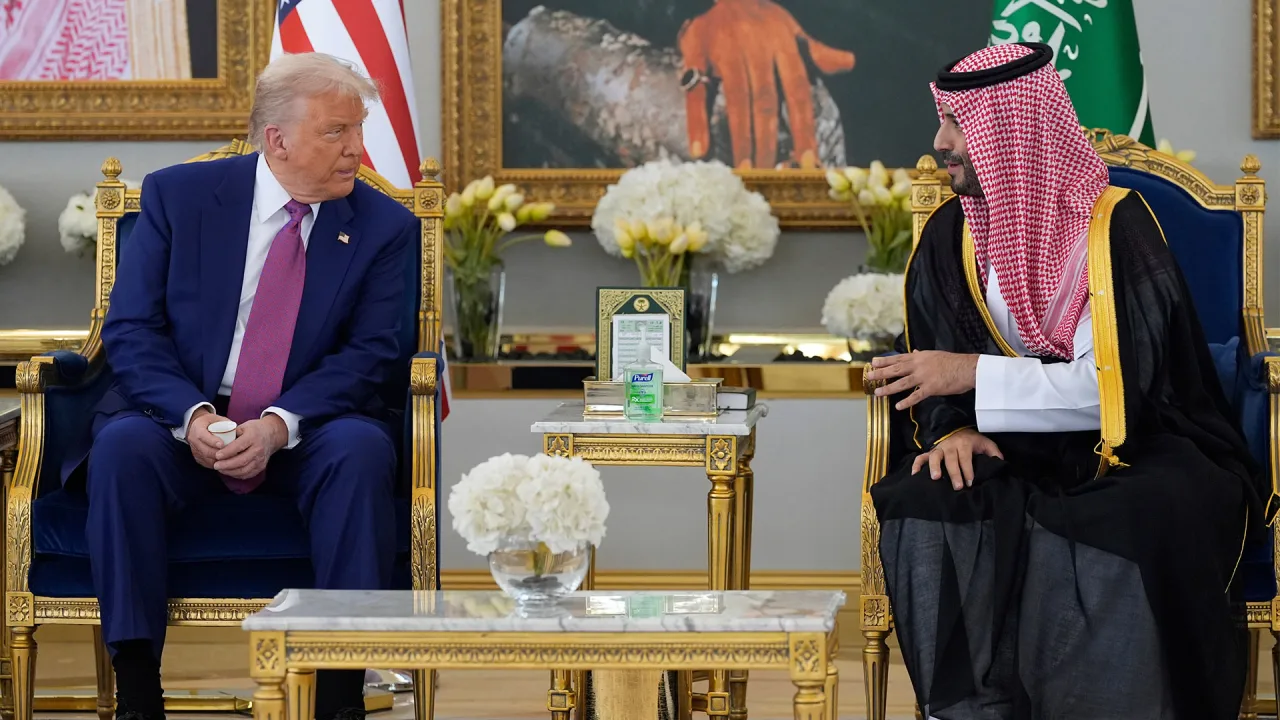In conflict: Putting Russia’s datacentre market under the microscope
When Russian troops invaded Ukraine on 24 February 2022, Russia’s datacentre sector was one of the fastest-growing segments of the country’s IT industry, with annual growth rates in the region of 10-12%.
However, with the conflict resulting in the imposition of Western sanctions against Russia and an outflow of US-based tech companies from the country, including Apple and Microsoft, optimism about the sector’s potential for further growth soon disappeared.
In early March 2025, it was reported that Google had disconnected from traffic exchange points and datacentres in Russia, leading to concerns about how this could negatively affect the speed of access to some Google services for Russian users.
Initially, there was hope that domestic technology and datacentre providers might be able to plug the gaps left by the exodus of the US tech giants, but it seems they could not keep up with the hosting demands of Russia’s increasingly digital economy.
Oleg Kim, director of the hardware systems department at Russian IT company Axoft, says the departure of foreign cloud providers and equipment manufacturers has led to a serious shortage of compute capacity in Russia.
This is because the situation resulted in a sharp, initial increase in demand for domestic datacentres, but Russian providers simply did not have time to expand their capacities on the required scale, continues Kim.
According to the estimates of Key Point, one of Russia’s largest datacentre networks, meeting Russia’s demand for datacentres will require facilities with a total capacity of 30,000 racks to be built each year over the next five years.
On top of this, it has also become more costly to build datacentres in Russia.
Estimates suggest that prior to 2022, the cost of a datacentre rack totalled 100,000 rubles, but now exceeds 150,000 rubles.
And analysts at Forbes Russia expect these figures will continue to grow, due to rising logistics costs and the impact the war is having on the availability of skilled labour in the construction sector.
The impact of these challenges is being keenly felt by users, with several of the country’s large banks experiencing serious problems when finding suitable locations for their datacentres.
Sberbank is among the firms affected, with its chairperson, German Gref, speaking out previously about how the bank is in need of a datacentre with at least 200MW of capacity, but would ideally need 300-400MW to address its compute requirements.
Stanislav Bliznyuk, chairperson of T-Bank, says trying to build even two 50MW datacentres to meet its needs is proving problematic. “Finding locations where such capacity and adequate tariffs are available is a difficult task,” he said.
about datacentre developments
North Lincolnshire Council has received a planning permission application for another large-scale datacentre development, in support of its bid to become an AI Growth Zone
A proposal to build one of the biggest datacentres in Europe has been submitted to Hertsmere Borough Council, and already has the support of the technology secretary and local councillors.
The UK government has unveiled its 50-point AI action plan, which commits to building sovereign artificial intelligence capabilities and accelerating AI datacentre developments – but questions remain about the viability of the plans.
Despite this, T-Bank is establishing its own network of data processing centres – the first of which should open in early 2027, he confirmed in November 2024.
Kirill Solyev, head of the engineering infrastructure department of the Softline Group of Companies, who specialise in IT, says many large Russian companies are resorting to building their own datacentres – because compute capacity is in such short supply.
The situation is, however, complicated by the lack of suitable locations for datacentres in the largest cities of Russia – Moscow and St Petersburg. “For example, to build a datacentre with a capacity of 60MW, finding a suitable site can take up to three years,” says Solyev. “In Moscow, according to preliminary estimates, there are about 50MW of free capacity left, which is equivalent to 2-4 large commercial datacentres.
“The capacity deficit only in the southern part of the Moscow region is predicted at 564MW by 2030, and up to 3.15GW by 2042.”
As a result, datacentre operators and investors are now looking for suitable locations outside of Moscow and St Petersburg, and seeking to co-locate new datacentres in close proximity to renewable energy sources.
And this will be important as demand for datacentre capacity in Russia is expected to increase, as it is in most of the rest of the world, due to the growing use of artificial intelligencetools and services.
The energy-intensive nature of AI workloads will put further pressure on operators that are already struggling to meet the compute capacity demands of their customers.
Speaking at the recent Ural Forum on cyber security in finance, Alexander Kraynov, director of AI technology development at Yandex, says solving the energy consumption issue of AI datacentres will not be easy.
“The world is running out of electricity, including for AI, while the same situation is observed in Russia,” he said. “In order to ensure a stable energy supply of a newly built large datacentre, we will need up to one year.”
According to a recent report of the Russian Vedomosti business paper, as of April 2024, Russian datacentres have used about 2.6GW, which is equivalent to about 1% of the installed capacity of the Unified Energy System of Russia.
Accommodating AI workloads will also mean operators will need to purchase additional equipment, including expensive accelerators based on graphic processing units and higher-performing data storage systems.
The implementation of these plans and the viability of these purchases is likely to be seriously complicated by the current sanctions regime against Russia.
That said, Russia’s prime minister, Mikhail Mishustin, claims this part of the datacentre supply equation is being partially solved by an uptick in the domestic production of datacentre kit.
According to the Mishustin, more than half of the server equipment and industrial storage and information processing systems needed for datacentres are already being produced in Russia – and these figures will continue to grow.
The government also plans to provide additional financial support to the industry, as – to date – building datacentres in Russia has been prevented by relatively long payback periods, of up to 10 years in some cases, of such projects.
One of the possible support measures on offer could include the subsidisation of at least part of the interest rates on loans to datacentre developers and operators.
At the same time, though, the government’s actions in other areas have made it harder for operators to build new facilities.
For example, in March 2025, the Russian government significantly tightened the existing norms for the establishment of new datacentres in the form of new rules for the design of data processing centres, which came into force after the approval by the Russian Ministry of Construction.
According to Nikita Tsaplin, CEO of Russian hosting provider RUVDS, the rules led to additional bureaucracy in the sector.
And, according to his predictions, that situation can extend the construction cycle of a datacentre from around five years to seven years.
The government’s intervention here was to prevent the installation of servers in residential areas, such as garages, but it looks set to complicate an already complex situation – prompting questions about whether Russia’s datacentre market will ever reach its full potential.
#conflict #putting #russias #datacentre #market
In conflict: Putting Russia’s datacentre market under the microscope
When Russian troops invaded Ukraine on 24 February 2022, Russia’s datacentre sector was one of the fastest-growing segments of the country’s IT industry, with annual growth rates in the region of 10-12%.
However, with the conflict resulting in the imposition of Western sanctions against Russia and an outflow of US-based tech companies from the country, including Apple and Microsoft, optimism about the sector’s potential for further growth soon disappeared.
In early March 2025, it was reported that Google had disconnected from traffic exchange points and datacentres in Russia, leading to concerns about how this could negatively affect the speed of access to some Google services for Russian users.
Initially, there was hope that domestic technology and datacentre providers might be able to plug the gaps left by the exodus of the US tech giants, but it seems they could not keep up with the hosting demands of Russia’s increasingly digital economy.
Oleg Kim, director of the hardware systems department at Russian IT company Axoft, says the departure of foreign cloud providers and equipment manufacturers has led to a serious shortage of compute capacity in Russia.
This is because the situation resulted in a sharp, initial increase in demand for domestic datacentres, but Russian providers simply did not have time to expand their capacities on the required scale, continues Kim.
According to the estimates of Key Point, one of Russia’s largest datacentre networks, meeting Russia’s demand for datacentres will require facilities with a total capacity of 30,000 racks to be built each year over the next five years.
On top of this, it has also become more costly to build datacentres in Russia.
Estimates suggest that prior to 2022, the cost of a datacentre rack totalled 100,000 rubles, but now exceeds 150,000 rubles.
And analysts at Forbes Russia expect these figures will continue to grow, due to rising logistics costs and the impact the war is having on the availability of skilled labour in the construction sector.
The impact of these challenges is being keenly felt by users, with several of the country’s large banks experiencing serious problems when finding suitable locations for their datacentres.
Sberbank is among the firms affected, with its chairperson, German Gref, speaking out previously about how the bank is in need of a datacentre with at least 200MW of capacity, but would ideally need 300-400MW to address its compute requirements.
Stanislav Bliznyuk, chairperson of T-Bank, says trying to build even two 50MW datacentres to meet its needs is proving problematic. “Finding locations where such capacity and adequate tariffs are available is a difficult task,” he said.
about datacentre developments
North Lincolnshire Council has received a planning permission application for another large-scale datacentre development, in support of its bid to become an AI Growth Zone
A proposal to build one of the biggest datacentres in Europe has been submitted to Hertsmere Borough Council, and already has the support of the technology secretary and local councillors.
The UK government has unveiled its 50-point AI action plan, which commits to building sovereign artificial intelligence capabilities and accelerating AI datacentre developments – but questions remain about the viability of the plans.
Despite this, T-Bank is establishing its own network of data processing centres – the first of which should open in early 2027, he confirmed in November 2024.
Kirill Solyev, head of the engineering infrastructure department of the Softline Group of Companies, who specialise in IT, says many large Russian companies are resorting to building their own datacentres – because compute capacity is in such short supply.
The situation is, however, complicated by the lack of suitable locations for datacentres in the largest cities of Russia – Moscow and St Petersburg. “For example, to build a datacentre with a capacity of 60MW, finding a suitable site can take up to three years,” says Solyev. “In Moscow, according to preliminary estimates, there are about 50MW of free capacity left, which is equivalent to 2-4 large commercial datacentres.
“The capacity deficit only in the southern part of the Moscow region is predicted at 564MW by 2030, and up to 3.15GW by 2042.”
As a result, datacentre operators and investors are now looking for suitable locations outside of Moscow and St Petersburg, and seeking to co-locate new datacentres in close proximity to renewable energy sources.
And this will be important as demand for datacentre capacity in Russia is expected to increase, as it is in most of the rest of the world, due to the growing use of artificial intelligencetools and services.
The energy-intensive nature of AI workloads will put further pressure on operators that are already struggling to meet the compute capacity demands of their customers.
Speaking at the recent Ural Forum on cyber security in finance, Alexander Kraynov, director of AI technology development at Yandex, says solving the energy consumption issue of AI datacentres will not be easy.
“The world is running out of electricity, including for AI, while the same situation is observed in Russia,” he said. “In order to ensure a stable energy supply of a newly built large datacentre, we will need up to one year.”
According to a recent report of the Russian Vedomosti business paper, as of April 2024, Russian datacentres have used about 2.6GW, which is equivalent to about 1% of the installed capacity of the Unified Energy System of Russia.
Accommodating AI workloads will also mean operators will need to purchase additional equipment, including expensive accelerators based on graphic processing units and higher-performing data storage systems.
The implementation of these plans and the viability of these purchases is likely to be seriously complicated by the current sanctions regime against Russia.
That said, Russia’s prime minister, Mikhail Mishustin, claims this part of the datacentre supply equation is being partially solved by an uptick in the domestic production of datacentre kit.
According to the Mishustin, more than half of the server equipment and industrial storage and information processing systems needed for datacentres are already being produced in Russia – and these figures will continue to grow.
The government also plans to provide additional financial support to the industry, as – to date – building datacentres in Russia has been prevented by relatively long payback periods, of up to 10 years in some cases, of such projects.
One of the possible support measures on offer could include the subsidisation of at least part of the interest rates on loans to datacentre developers and operators.
At the same time, though, the government’s actions in other areas have made it harder for operators to build new facilities.
For example, in March 2025, the Russian government significantly tightened the existing norms for the establishment of new datacentres in the form of new rules for the design of data processing centres, which came into force after the approval by the Russian Ministry of Construction.
According to Nikita Tsaplin, CEO of Russian hosting provider RUVDS, the rules led to additional bureaucracy in the sector.
And, according to his predictions, that situation can extend the construction cycle of a datacentre from around five years to seven years.
The government’s intervention here was to prevent the installation of servers in residential areas, such as garages, but it looks set to complicate an already complex situation – prompting questions about whether Russia’s datacentre market will ever reach its full potential.
#conflict #putting #russias #datacentre #market










